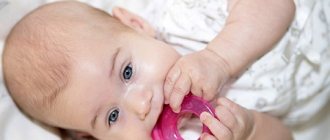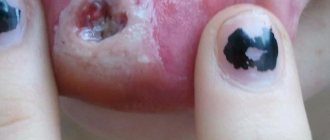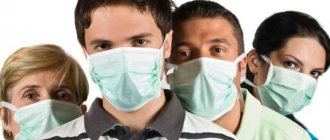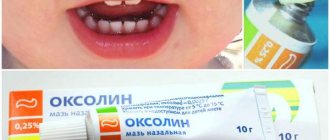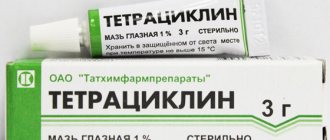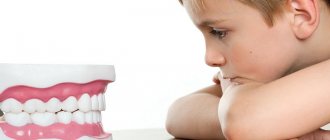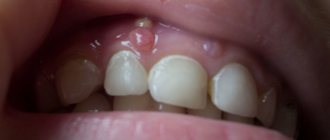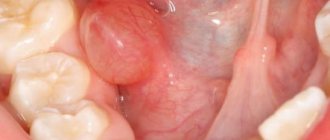Lip laceration: first aid
First aid is provided in the following order:
- To stop the bleeding - cold is applied to the lip, after which hemostatic agents are applied to reduce bleeding. It is recommended to treat the wound with hydrogen peroxide to prevent the inflammatory process from occurring.
- Reassure the person and record the time of the wound - with large blood losses, hemorrhagic and painful shock can develop, so before arriving at the hospital, they talk with the victim and maintain contact.
- To anesthetize a wound - you can give a person any analgesic (Analgin, Nurofen), which will reduce painful manifestations and improve the general condition.
How to properly apply ice to a lip wound
If there is no breathing and a thready pulse, it is necessary to perform a series of resuscitation measures aimed at maintaining vital processes in the body. Artificial respiration is performed through the nose, since contact with the site of injury may cause infection. Indirect cardiac massage allows you to avoid the development of clinical death, but if it is performed incorrectly, complications can develop.
If the patient is unconscious, he should be placed on his side so that bleeding from the wound does not cause blood to enter the stomach through the mouth. With severe painful shock, vomiting can develop, so in the side position, the likelihood of vomit getting into the respiratory system is minimal.
My lip is swollen, what should I do?
This obvious and noticeable external defect haunts any person. It’s good if you already have experience in this matter and have an idea of what to do, but more often the provoking factor is not known. In isolated cases, this phenomenon occurs for no reason, more often it indicates some kind of health problem and should be dealt with immediately.
Swollen lip - what could it be?
To remove swelling, you must first find out the cause of this symptom. When your lip is swollen - what could it be? One of the doctors, for example, a traumatologist, dermatologist, dentist, therapist or surgeon, can say this with 100% accuracy.
Each of them, based on a visual examination and medical history, will be able to make a preliminary conclusion about the root cause why the lip could be swollen. There is a certain list of factors that can cause bloating. It is necessary to establish this precisely in order to prescribe the correct treatment.
The lower or upper lip may swell due to:
- bruise;
- trauma to the mucous membrane (bite, piercing, etc.);
- infections (not only inside the oral cavity, but throughout the body);
- violation of the rules for performing a dental procedure;
- inflammatory processes;
- herpes;
- allergic reaction.
What to do if your lip is swollen
The best decision if your lips are swollen is to visit a doctor. Even the most seemingly insignificant problems can be dangerous to human health.
The bloating itself is not a threat, but the reason that caused it can harm you. For example, the spread of infection, frequent suppuration, ulcers on the damaged area, aggravation of the condition due to the addition of other infectious flora.
Only a specialist will be able to tell you as correctly as possible what to do if your lip is swollen.
How to remove swelling from your lip after a blow
Swelling of the lip is a natural reaction of the body to physical impact on this part of the body. This is an obvious problem that is relatively easy to fix.
You should know how to remove a swelling from the lip after a blow in order to prevent infection and suppuration.
Swelling will occur almost immediately after the injury, accompanied by a violation of the integrity of the skin and mucous membranes. If you were hit and your lip is swollen, what to do:
- First, apply a compress (hot/warm) to the injury site. To stop the flow of blood to the damaged area, it is also possible to use a cold option. It should be applied not to the wound itself, but to the area of skin adjacent to it.
- If the integrity of the skin is damaged, it is recommended to treat the wound with hydrogen peroxide and any agent that will promote healing.
- Lips have very delicate, thin skin, so serious injuries can lead to changes in appearance (attractiveness).
If you notice that an injury has resulted in loss of contour, should you seek immediate medical attention?
Herpes on the lower lip
People who suffer from this disease immediately suspect herpes when their lips become swollen. Before the appearance of herpetic blisters, inflammation occurs and pain increases.
Herpes can occur equally on the lower lip or upper lip, but more often it appears in the corner of the mouth. After a day, a blister typical of the disease forms with a translucent liquid inside.
It is strictly forbidden to squeeze or crush the tumor.
The maximum effectiveness of special products is noted if you start using them when the lip has just begun to swell.
As a rule, people use Acyclovir, Herpevir, Zovirax, which contain components that destroy the manifestations of the herpes virus, help reduce pain, and have a healing effect.
The product must be applied systematically, regularly until the symptoms subside and the blisters disappear. If medications do not help, and the symptoms intensify, you need to consult a specialist to prescribe adequate treatment.
Lip bite
A person is accidentally able to bite his own lip, breaking the integrity of the tissues. This leads to the fact that it can swell, begin to hurt, and in some cases complications begin.
Tissue damage opens the door to infection, triggering an inflammatory process, which is accompanied by the accumulation of substance inside: discharge, pus, clear liquid.
Lip biting is not dangerous to humans in most cases, but can sometimes pose a health hazard.
If you bite your lip, don't ignore this fact. Take advantage of the available means to prevent the development of inflammation:
- treat the wound with peroxide;
- apply iodine solution;
- drink still water to saturate and moisturize the mucous membranes.
Swells for no reason
In rare cases, a person develops a tumor on his lip suddenly and for no apparent reason. This does not mean that it just started to swell; rather, you simply don’t know what prompted the bloating.
If your lip is swollen for no reason, you need to analyze your recent actions and find out why this reaction occurred.
As a rule, without obvious damage to the skin, this symptom causes an inflammatory, infectious process in the body, an allergic reaction to the product.
Your lip may become inflamed after anesthesia at a dentist appointment; you could have been bitten by a mosquito, which became a carrier of infection. In any case, there is a reason for this manifestation, but you cannot find it.
An allergy, for example, can begin suddenly in an adult. If the tissue continues to swell or hurt, contact a specialist immediately.
He will be able to find out the cause of the symptom and tell you what to do.
In the morning
This problem can be permanent or isolated, but its cause should be found out in any case. Lips become swollen in the morning, for example, due to a large amount of liquid drunk the night before.
Problems can be solved very easily by reducing the amount of water/tea before bed. The cause may be an allergy that has recently developed. At the first stage of herpes, the vesicle is not visible, so the swelling looks causeless, but there is always pain at the site of inflammation.
If the problem persists and recurs every morning, contact a specialist.
The child has
This problem creates additional difficulties due to the fact that the baby cannot always correctly, accurately describe his feelings, or reconstruct in sequence the events of several days, which could lead to the child having a swollen lip. What to do if your baby’s lip is swollen:
- Reconsider your breastfeeding tactics. Inflammation occurs due to improper attachment of the baby, which leads to the formation of calluses in the oral cavity.
- The child is more susceptible to stomatitis, so you should carefully examine the inside of the mucous membrane, cavity, or consult a dentist.
- Parents may not yet know about their child’s allergic reactions, so this is often one of the reasons for swelling. In this case, you need to do the following: remember what was eaten the day before and exclude these foods from the diet, and then add them back one by one and monitor the reaction. Antihistamines are suitable to relieve swelling.
- Acute respiratory diseases are more pronounced in children. One of the symptoms in the initial stage will be swelling of the lips. Children should be treated only according to the regimen prescribed by the pediatrician.
- Children are clumsy at an early age, so they may accidentally split or bite their lip, causing swelling.
Source: https://gemoglobin.top/guba-opuhla-chto-delat/
Lacerated wound of the lip: main stages of treatment
A lacerated wound on the lip from a blow or other minor mechanical damage can be treated at home using special wound-healing creams and ointments. If there is a discrepancy between the edges of more than 1 cm, suturing will be required, which is carried out by a doctor under sterile conditions.
Drug therapy
The healing time of a lip laceration depends on the degree of damage and the characteristics of the body’s regeneration. On average, the entire process takes 2-3 weeks. The following groups of medications will help speed up recovery and facilitate the entire process:
- 1. Complex analgesics – have a strong analgesic effect and help improve the general condition of the body.
- 2. Hemostatic drugs (Dicynon, Vikasol) - prescribed for heavy bleeding that does not stop for more than 1 hour. Help prevent large blood losses by activating the coagulation process.
- 3. Non-steroidal anti-inflammatory drugs (Ibuprofen) - reduce pain, eliminate swelling and swelling of the lip.
- 4. Wound healing ointments and creams - ointments based on zinc and heparin are used to treat wounds. You need to make sure that the medicine does not get on the oral mucosa, which can cause a burn.
Processing agents
Traditionally, pharmaceutical antiseptics are used for open wounds. Also, during recovery, folk recipes are used to speed up healing.
Pharmacy drugs
How to treat if a child has a broken lip:
- Hydrogen peroxide . Cleans well, stops bleeding and disinfects, but slows down healing. It is recommended to use on the first day to stop bleeding.
- Betadine is a strong antiseptic and disinfectant with a wide spectrum of action. It is advisable to use it in the presence of pus or secondary infection. Effective against protozoa, bacteria and viruses. When prescribing, exercise caution, since iodine often causes allergies. Used as a solution in proportions of 1:10 for washing external wounds and rinsing damaged mucous membranes.
- Potassium permanganate . A weak solution of potassium permanganate has a bactericidal and astringent effect. Effective in treating ulcers and wounds.
- Furacilin is a powerful antiseptic. It is effective against many bacteria and promotes the healing process. For processing, the tablet is diluted in 100 ml of hot water. Afterwards, it is recommended to soak a bandage in the solution and apply it to the sore spot.
- Hemostatic sponge is a substance that affects blood clotting and stops capillary bleeding. A useful remedy in the first aid kit for lacerations and cuts. Used for deep injuries and severe bleeding.
Attention! It is a serious mistake to apply corticosteroid-based ointments to unhealed surfaces.
Video from Dr. Komarovsky:
Folk remedies
For lovers of safe treatment, traditional recipes are suitable. You can safely use them to anoint a child’s broken lip:
- Mumiyo . A natural balm used in folk medicine. Accelerates healing, relieves inflammation, restores. It is a stimulator of tissue regeneration processes. The tablets are crushed, filled with water, moistened with a bandage and applied to the wound.
- Honey _ Honey has a healing effect. Apply a little product to a gauze or cotton pad and apply to the wound. The second way is to hold the candied piece in your mouth at the site of injury. This recipe is not suitable for people allergic to propolis and honey.
- Aloe . It is considered a good natural antiseptic. The plant has an anti-inflammatory effect, stimulates metabolic processes, and promotes wound healing. Finely chop the leaf, squeeze out the juice through gauze, moisten the bandage and apply to the damaged area for 20 minutes. You can use a combination of honey and aloe juice. To prepare it, take two components in equal quantities, mix well and apply to the damaged area. The product is stored in the refrigerator.
- Turmeric . Indian spices are used not only to give a dish an interesting taste. It is used as a wound-healing, hemostatic and antibacterial agent. Prepare a mixture - the powder is mixed with boiled water (proportions by eye) until a thick mass is formed and applied to the wound.
Lip laceration: recommendations
The wound should be sealed with a plaster, under which a bandage tampon with ointment is placed. Dressings are done 2-3 times a day. Before applying a new layer of cream, the old one is removed by rinsing with hydrogen peroxide.
If an infection has entered the wound, it has become swollen and hyperemic, rinsing with Furacilin will help. If suppuration occurs and pain increases, you will need to consult a specialist again, who will select the appropriate antibiotics that can suppress the inflammatory process.
Chlorhexidine and Miramistin can be applied to the inside of the wound surface, which helps prevent the spread of the inflammatory process in the oral cavity. The use of medications, their selection and duration of treatment directly depends on the degree of damage. Treatment at home is prescribed by a doctor, after which constant monitoring of the healing process is necessary.
In the presence of complex wounds of the entire face and the development of hemorrhagic shock, blood transfusions and the introduction of solutions that replenish the volume of circulating fluid may be required. In this case, before the operation, a number of resuscitation measures are carried out aimed at maintaining the body.
How to remove swelling after a blow
The affected lip may darken and swell. The following types of damage to the labial border are distinguished:
- Bruise (can be caused by being hit by an object, resulting in internal swelling). The bruise or hematoma will go away within a few weeks.
- An abrasion is a minor tissue injury that does not need to be stitched.
- The wounds appear when the labial border is bitten or cut. The main symptom is a violation of the integrity of the skin. The wound surface may be damaged through and through.
Treatment provides assistance in restoring normal shape and allows the natural color to return. If the lip is swollen from the inside, lotions based on bee honey are useful. The mass is applied to cotton wool and applied to the lower or upper swollen area for 30 minutes.
It is forbidden to apply warm compresses to the wound; the area will swell and swell even more.
Surgical intervention
A lacerated wound of the lip with separation of the edges requires sutures. The wound site is injected with a local anesthetic, after which the edges are sutured. The suture is treated with an antiseptic, after which a sterile bandage is applied.
Putting stitches on a lacerated lip wound
The suture site is examined daily for the presence of an inflammatory process. If the healing process is successful, the sutures can be removed on the 10th day. If there are large complex wounds and a large number of stitches, the assistance of a plastic surgeon may be required in the future.
After suturing, the patient is prescribed medications such as:
- 1. Antibiotics – prevent the development of the inflammatory process by destroying bacterial microflora in the body.
- 2. Analgesics - make the healing process less painful.
- 3. Non-steroidal anti-inflammatory drugs - reduce swelling and hyperemia of the skin.
After the sutures are removed, the wound is treated with an antiseptic without the need to apply a sterile dressing. To eliminate the development of the inflammatory process in the oral cavity, rinsing with decoctions of medicinal herbs, Furacilin, and treatment with hydrogen peroxide are prescribed.
It is strictly forbidden to apply stitches outside a medical facility. Even with experience, the likelihood of infection is high, since it is not possible to achieve sterility at home, as is possible in the operating room.
Treating a torn lip at home
A lacerated wound on the lip, if it is small in size, can be treated at home. The following recipes are suitable for this:
- 1. Stop bleeding with ice cubes or any frozen product from the freezer - cold constricts blood vessels, so bleeding will stop quickly.
- 2. Disinfecting the wound with any antiseptic (Miramistin, Chlorhexidine, hydrogen peroxide) will help avoid infection of the wound.
- 3. Applying wound healing creams - Bepanten, Solcoseryl will help speed up the regeneration processes of damaged areas of soft tissue, but they should be applied with extreme caution, avoiding getting into the oral cavity.
- 4. Rinsing your mouth with a decoction of chamomile, calendula, and nettle helps reduce the inflammatory process.
If there is redness of the wound, swelling of the skin around it and an increase in temperature, you should immediately see a doctor. Such symptoms indicate the addition of an infection that provoked the development of the inflammatory process.
To reduce wound trauma, it is recommended to avoid eating solid foods that require careful chewing and jaw movement. Products can be ground in a blender until pureed, which makes them easier to swallow. It is best to feed through a drinking straw to avoid food getting into the inside of the wound.
Leftover food can provoke rotting processes on the teeth, so after each meal you should rinse your mouth and treat the wound from the inside with a disinfectant solution.
In the absence of comprehensive treatment, after 2-3 days, suppuration begins in the wound, and body temperature increases. The patient's condition is rapidly deteriorating, which requires immediate medical examination. Refusal of medical care and suturing leads to incorrect and uneven fusion of the torn ends of the wound, which provokes modification of the lip. The bite is disrupted and sensitivity is reduced. In the future, the skin becomes thinner and susceptible to peeling and dryness.

